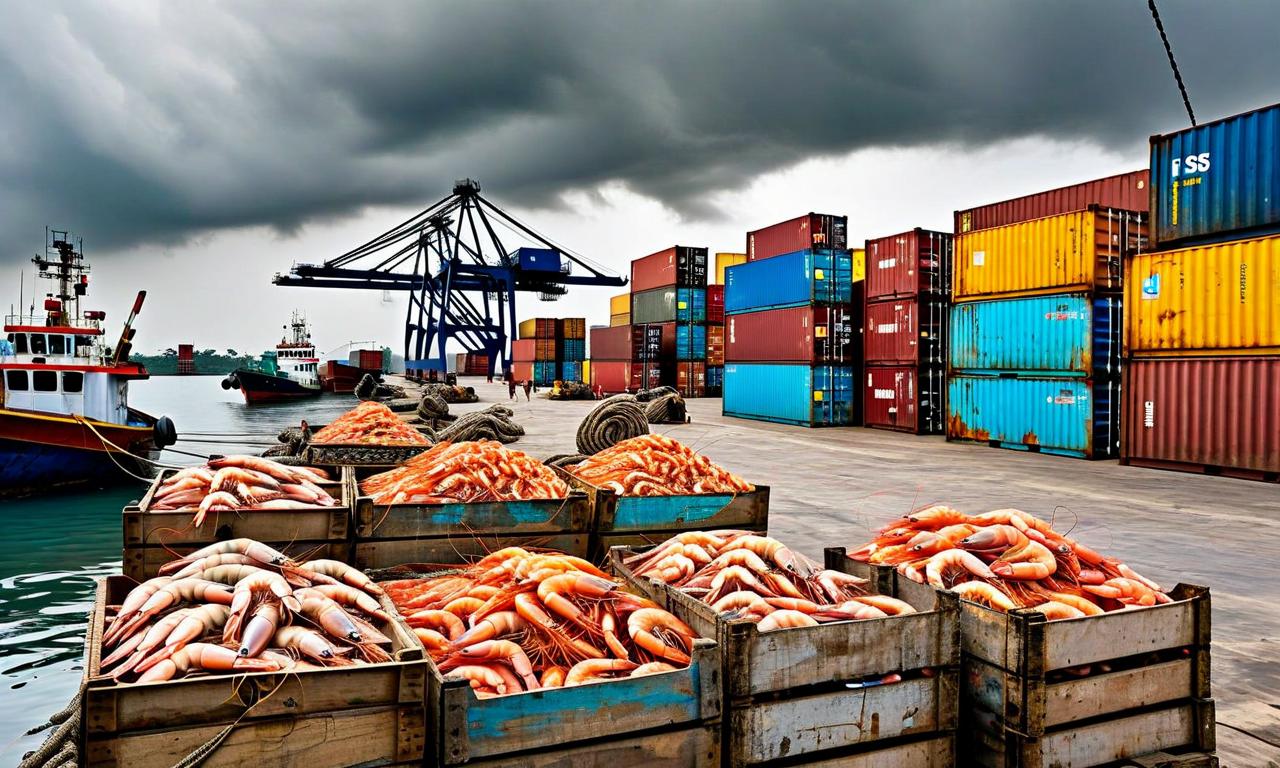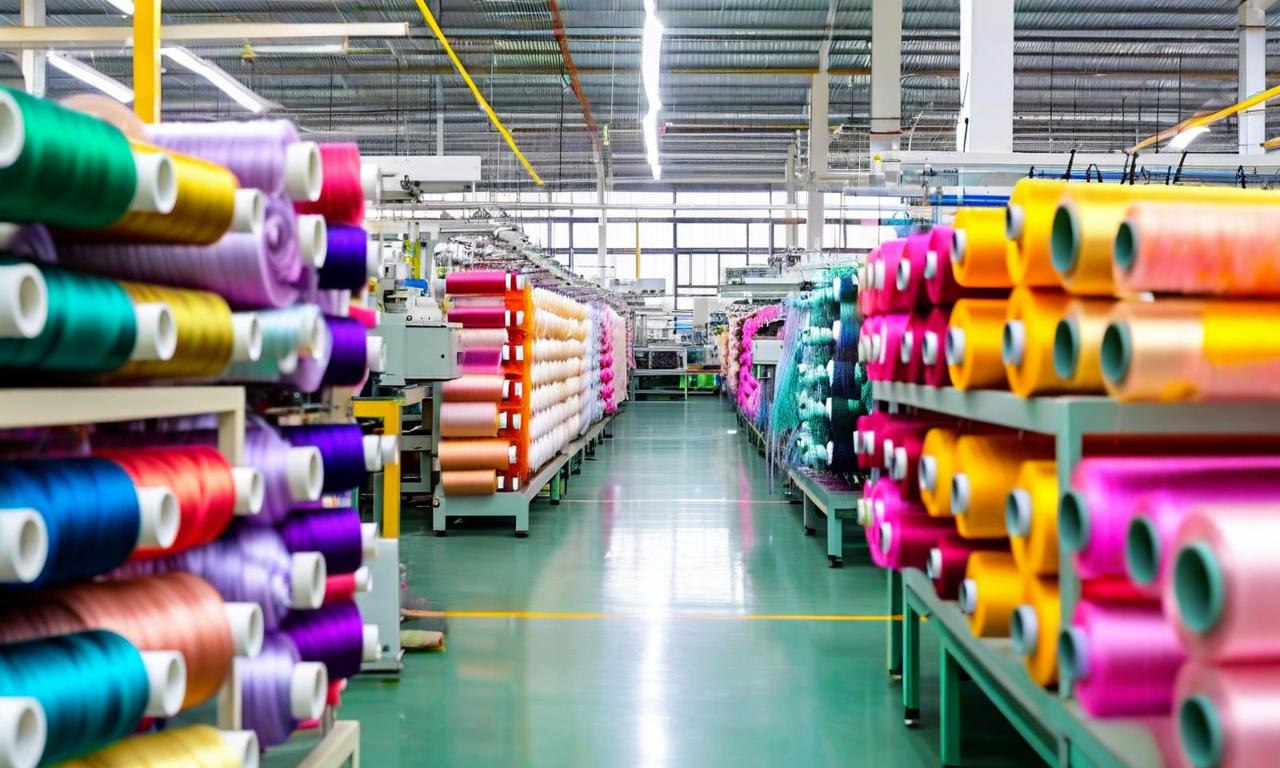Indian Shrimp and Textile Stocks Plummet as Trump's 50% Tariff Takes Effect
Indian shrimp and textile exporters faced significant stock declines following the implementation of a 50% tariff on Indian imports by the US. Shrimp exporters like Avanti Feeds, Apex Frozen Foods, and Waterbase saw share drops of 4.00%, 11.60%, and 3.80% respectively. Textile companies such as Kitex Garments, Pearl Global, and Gokaldas Exports also experienced stock price falls. The tariff puts Indian exporters at a disadvantage compared to competitors like Bangladesh and Vietnam, who face only 20% tariffs. Companies with high exposure to the North American market are particularly affected. Analysts suggest these measures could reduce India's FY26 growth by up to 40 basis points.

*this image is generated using AI for illustrative purposes only.
Indian shrimp and textile exporters faced a significant setback on Thursday as their shares tumbled following the implementation of a 50% tariff on Indian imports by the Trump administration. The new tariff, which came into effect on Wednesday, has sent shockwaves through export-oriented sectors, particularly affecting companies heavily reliant on the U.S. market.
Shrimp Exporters Bear the Brunt
The shrimp export industry, a key contributor to India's seafood exports, witnessed substantial declines in stock prices:
- Avanti Feeds saw its shares drop by 4.00%
- Apex Frozen Foods experienced a sharp decline of 11.60%
- Waterbase shares fell by 3.80%
The impact on shrimp exporters is particularly severe, given that the United States has been India's largest seafood buyer. In the previous fiscal year, the U.S. imported $2.70 billion worth of seafood products from India, with frozen shrimp accounting for 92.50% of these exports.
Textile Sector Also Hit
The textile industry, another significant export-oriented sector, also felt the impact of the new tariffs:
- Kitex Garments saw a 5.00% decline in its stock price
- Pearl Global experienced a 5.30% drop
- Gokaldas Exports shares fell by 2.40%
Comparative Disadvantage
The 50% tariff rate imposed on Indian imports is substantially higher than the 20% rate applied to competitors such as Bangladesh and Vietnam. This disparity puts Indian exporters at a significant competitive disadvantage in the U.S. market.
Company-Specific Impacts
The effect of these tariffs is particularly pronounced for companies with high exposure to the North American market:
- Avanti Feeds derives 77.00% of its quarterly revenue from North America
- Apex Frozen Foods generates 53.00% of its revenue from the region
Broader Economic Implications
Analysts suggest that the tariffs could have far-reaching consequences for India's economic growth. Estimates indicate that these measures could potentially reduce India's FY26 growth by up to 40 basis points. This projection is based on the fact that the United States accounts for 20-25% of India's goods exports.
Sectors at Risk
While the immediate impact is evident in the shrimp and textile sectors, other labor-intensive industries are also expected to face significant challenges. These include:
- Leather industry
- Footwear manufacturers
- Gems and jewellery sector
These sectors, which rely heavily on exports to the U.S., are likely to experience the greatest impact from the new tariff regime.
The implementation of these tariffs marks a challenging period for Indian exporters, particularly those in the shrimp and textile industries. As companies grapple with the new economic landscape, the coming months will be crucial in determining how these sectors adapt to the changed market conditions and seek alternative strategies to mitigate the impact of the increased tariffs.
























